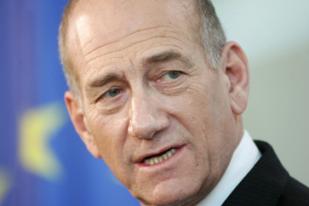Profile: Ehud Olmert
A look at the life of the Israeli prime minister, Ehud Olmert.

 |
| Ehud Olmert is under pressure to step down [AFP] |
Ehud Olmert, the Israeli prime minister, is under growing pressure to resign following the publication of the Winograd Commission’s interim report, which was highly critical of his handling of last summer’s war in Lebanon.
Since that conflict, when Israel failed to defeat Hezbollah fighters in southern Lebanon, Olmert has seen his approval ratings sink ever-lower, perhaps spelling the end for his once-glittering poltical career.
A former mayor of Jerusalem, Olmert had built his political career on his reputation as a close ally of the former prime minister, Ariel Sharon.
When a stroke left Sharon unfit to govern in January 2006, Olmert became acting prime minister and chairman of Sharon’s Kadima party. And when Sharon failed to recover, Olmert became prime minister three months later.
Likud rivals
Despite their close political relationship, Sharon and Olmert were also rivals and in 1999 they squared off against each other to battle for the leadership of the Likud party, which Sharon won by a big margin.
In 2003, Sharon brought Olmert into his government as a deputy prime minister. He also held the trade and industry, communications and finance portfolios in Sharon’s administration.
As mayor of Jerusalem, Olmert called for the expansion of Israeli settlements in the West Bank. However, during Ariel Sharon’s second term as prime minister, Olmert supported his call for Israel’s withdrawal from Gaza.
This enhanced Olmert’s reputation as one of Likud’s more dovish senior figures – while also cementing his reputation as one of Sharon’s closest allies.
He continued to support Sharon throughout the withdrawal process, when illegal Israel settlements were dismantled in Gaza and settlers evicted.
When Sharon left Likud to set up the new Kadima party, Olmert was among the first to join him.
Corruption charges
Olmert’s political life has also been dogged by controversy over allegations of financial mismanagement.
In 1996, Olmert was tried on charges of breaking Israeli law on party funding as Likud party treasurer during the 1988 elections although he was eventually cleared of all charges.
Olmert was investigated on suspicions of accepting bribes from a businessmen during the ‘Greek Island affair’ although prosecutors dropped the charges due to lack of evidence in 2004.
He has also faced allegations that as trade minister in 2001, he helped push through a grant for a business linked to a colleague. Last week the government watchdog recommended a criminal investigation.
As finance minister in 2005, Olmert allegedly tried to tip a government tender for sale of a major bank to a group of his backers, but failed.
Early days
Olmert was born in September 1945 near Binyamina, when Palestine was a British Mandate.
He was first elected to the Knesset at the age of 28, and went on to work in the Foreign Affairs and Security committees.
He got his first taste of government from 1988 to 1990, when he served as a minister-without-portfolio for minority issues in Yitzhak Shamir’s national unity government.
Olmert was also health minister in the Likud government that followed and held that position for two years.
In 1993, Olmert became mayor of Jerusalem, beating the long-standing incumbent Teddy Kollek.
He served two full terms in the post, and oversaw changes to the city’s education and transport systems, before quitting to become deputy prime minister.
He is married to Aliza, a writer, and the couple have five children.